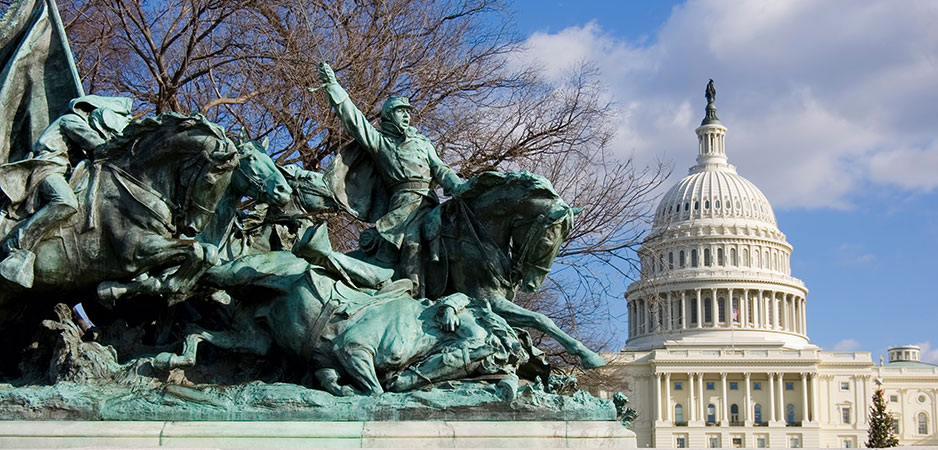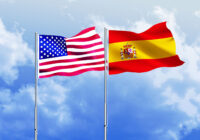With their focus on the present and occasionally on the future (for the visionaries and innovators), Americans have never been enamored of history as a subject of study. They have preferred simply to ingest the simplistic myths transcribed in textbooks produced in Texas that offer them that minimal satisfaction of knowing they share with other citizens a common, seriously defective memory of the past.
The massive ongoing protests about enduring racial inequality could be leading to what might deserve the epithet of “the new historical awakening.” The year 1619 may soon supplant 1620, the year American schools have traditionally cited as the ground zero of US history. In 1620 the Pilgrims arrived on the Mayflower to launch a new civilization blessed by God that they thought of as the New Jerusalem. In 1619, the first slaves arrived in Virginia.
Switzerland Confronts Its Role in the Slave Trade
Time magazine features an article by Phillip Goodrich that not only helps to set the record straight about the events of the early 17th century and their importance for the future, but also delves into the complex reality of what many people now agree should be called America’s “original sin” — slavery.
The article bears the title “As Confederate Statues Come Down, It’s Worth Remembering That the Civil War Wasn’t the Only American Conflict Involving Slavery.” The author affirms that “the Civil War did not occur in a vacuum; it was the culmination of centuries of institutional racism against people of African origin.” He makes the case, difficult to swallow for many Americans raised on the stories of the heroism of the nation’s first patriots, that the Revolutionary War was also a war to preserve slavery, but one that succeeded.
Here is today’s 3D definition:
Civil war:
The permanent condition of US politics seething below the surface, whose eruption is only prevented by the determination to wage war elsewhere as a means of distracting the population’s attention from the reality of the domestic conflict.
Contextual Note
It may seem extreme to claim that US culture has at its very core a mindset of civil war. Every nation has its internal political tensions. But there are several factors in the American psyche that justify this assertion. Goodrich claims that the Civil War during Abraham Lincoln’s first term as president was not the only war about slavery. It may not even have been the only civil war in US history, especially as the clouds of a new one now appear to be gathering on the horizon. The radical tension that underlies civil conflict has become a permanent feature of the culture.
As Alexis de Tocqueville observed nearly two hundred years ago, Americans have been conditioned to share a tacit belief that democracy is less about popular consensus than it is about competing interests attempting to prevail over one another. To appear rational, those interests must take the form of binary opposition. In a culture that elevates the spirit of competition to the level of supreme virtue, this belief about democracy as a battleground fosters a civil war mindset. It has never been more obvious than in today’s electoral politics, where the two parties function like Matthew Arnold’s “ignorant armies” motivated solely by the goal of achieving victory on the battlefield.
It has reached the point where the average American expects and requires a binary opposition to even begin to make sense of the world. In the US it is common to ask even a stranger, “Are you a Democrat or Republican?” In Britain, for example, apart from the small minority who adhere to a party, people do not identify themselves as Labour or Conservative. They may express their political preferences or reveal which party they tend to vote for, but they don’t spontaneously accept the label as a badge of identity.
The battle between the two parties that divides the nation into two opposed camps resembles a professional wrestling match more than it does a civil war. As President Barack Obama maintained in 2013, the two parties agree on 70% of “a whole range of issues.” Elections have become not the basis of democracy or even the playing field in which true competitions are staged. Rather they function like a safety valve put in place to release some of the building pressure that constantly pushes a permanently unstable society toward civil war.
And although they are designed to prevent open conflict, the democratic processes pitting Democrats against Republicans have the ultimate effect of aggravating the civil war mindset by encouraging the aggressive instincts that explode when a true conflict emerges.
Historical Note
Phillip Goodrich correctly sees the racial question as the factor that has triggered multiple civil wars in US history. Like the great Civil War itself that lasted from 1861 to 1865, the permanent American civil war is not a war between the races. It’s a standoff between two ideas of what constitutes the nation’s identity. One is system-based, the other is people-based. The system-based ideology depends on a belief in the virtues of free market competition and the dominance of the strong over the weak. The people-based camp, the protesters who are in the streets today, has grown out of the awareness that only a few have the ability to compete.
Today’s protest movement reveals the emergence of a class conflict that brings together people of all ethnicities. Belief in the system across wide swathes of the population has seriously eroded. In the past, the reality of the conflict between the people and the system has been obscured by the tradition of racism that for centuries pushed the white underclass to identify with the culture of the elite, even at the expense of their own interests. They accepted and admired a culture dominated by wealthy and powerful white people who, thanks to their commitment to running a system dedicated to promoting their own personal interests, have no time to empathize with the underclass.
The established system of thought depended not only on presenting a truncated view of history. It had to denigrate history itself, which contains far too many secrets about how power is wielded than it would be healthy to share with the general public. Historical memory is always selective, but in the US it has been emptied of most of its contents. In schools and the media, Americans routinely learn that history is little more than the story of the brave 18th-century colonists who, fed up with being taxed while having no representation in Parliament, took things into their own hands, slung their rifles over the shoulders, ushered the English out the door, proceeded to invent the first democratic nation and endowed it with a divinely inspired text called the Constitution.
Americans are certainly aware that slavery was part of that story, but they have also accepted the idea that the Civil War essentially cleaned up the Constitution and erased that source of shame from the nation’s historical memory. The after-effects were taken care of a century later thanks to the emergence of a hero called Martin Luther King Jr. and a president by the name of Lyndon Johnson. All was not perfect, but things could proceed on a fairly even keel until May 25, 2020, when 8 minutes and 46 seconds of videoed torture ripped away the veil from the past.
Last year, The New York Times published the 1619 project that developed a thesis similar to Goodrich’s article in Time magazine. The Times drew criticism from various quarters, largely from those who felt the traditional image of US history was under threat. Time magazine is a mainstream establishment publication not known for provocatively challenging the official narrative. The fact that it published Goodrich’s article tells us just how quickly things have changed. The notion of ambiguities and responsibilities of history appears finally to be emerging in the popular culture of a nation that has always preferred getting down to business and leaving the tedium of history to the boring historians to debate amongst themselves.
*[In the age of Oscar Wilde and Mark Twain, another American wit, the journalist Ambrose Bierce, produced a series of satirical definitions of commonly used terms, throwing light on their hidden meanings in real discourse. Bierce eventually collected and published them as a book, The Devil’s Dictionary, in 1911. We have shamelessly appropriated his title in the interest of continuing his wholesome pedagogical effort to enlighten generations of readers of the news. Click here to read more of The Daily Devil’s Dictionary.]
The views expressed in this article are the author’s own and do not necessarily reflect Fair Observer’s editorial policy.
Support Fair Observer
We rely on your support for our independence, diversity and quality.
For more than 10 years, Fair Observer has been free, fair and independent. No billionaire owns us, no advertisers control us. We are a reader-supported nonprofit. Unlike many other publications, we keep our content free for readers regardless of where they live or whether they can afford to pay. We have no paywalls and no ads.
In the post-truth era of fake news, echo chambers and filter bubbles, we publish a plurality of perspectives from around the world. Anyone can publish with us, but everyone goes through a rigorous editorial process. So, you get fact-checked, well-reasoned content instead of noise.
We publish 2,500+ voices from 90+ countries. We also conduct education and training programs
on subjects ranging from digital media and journalism to writing and critical thinking. This
doesn’t come cheap. Servers, editors, trainers and web developers cost
money.
Please consider supporting us on a regular basis as a recurring donor or a
sustaining member.
Will you support FO’s journalism?
We rely on your support for our independence, diversity and quality.






